It can be confusing if your engine is overheating even though the coolant is full. This can happen due to several reasons, such as a blocked radiator, a broken thermostat, trapped air in the cooling system, a bad water pump, or problems with the cooling fans. Knowing these possible issues can help you fix them before they cause severe engine damage. In this guide, we’ll explain why your engine might be overheating without any leaks and how you can quickly solve these problems.
What Are the Signs of an Engine Overheating?
Symptom 1: Temperature Warning Light
One of the first signs of an engine overheating is the temperature warning light on your dashboard. This light will come on when your engine is too hot, allowing you to address the problem before it causes serious damage. If you don’t have a warning light, a temperature gauge moving into the red zone is another clear indicator.
Symptom 2: Unusual Noises
Overheating can cause your engine to make strange noises, like ticking or thumping. When the engine gets too hot, the oil loses its ability to lubricate properly, leading to a ticking sound. A thumping noise can occur when overheated coolant boils and mixes with cooler liquid, causing sudden temperature changes.
Symptom 3: Coolant Leaks
If there is a leak, notice a puddle of coolant under your car; it may be peaking. Even if your coolant reservoir is full, a leak elsewhere can cause your vehicle to overheat. It’s essential to find and fix the leak to prevent further issues.
Symptom 4: Steam from the Hood
Steam from under the hood indicates your engine overheating. This happens when the coolant reaches its boiling point. If you see steam, pull over immediately and turn off the engine to let it cool down.
Symptom 5: Hot Hood
The hood of your car will naturally be warm after driving, but if it’s too hot to touch, your engine might be overheating. If you can’t hold your hand on the hood for more than a few seconds, it’s time to let your car cool down.
Symptom 6: Reduced Engine Power
An engine overheating can lose power, making it hard to accelerate. This happens because the engine components expand and don’t work as efficiently. Watch for this symptom, especially if you notice any other signs.
You now know the signs of engine overheating. Next, discuss some common reasons for car overheating even when the coolant is full.
Why is my car overheating? What are the reasons
Reason 1: Water Pump Failure
The water pump’s main job is to move coolant through the engine and radiator. If the water pump fails, the coolant won’t circulate properly, causing the engine overheating. Regular checks and maintenance can help detect early signs of a failing water pump.
Reason 2: Blocked Radiator
A radiator can become blocked by debris or internal deposits, preventing the coolant from flowing freely. When the coolant cannot move through the radiator, it cannot dissipate heat, leading to engine overheating but coolant full. Regularly inspect and clean your radiator to avoid this issue.
Reason 3: Faulty Thermostat
The thermostat regulates the flow of coolant through the engine. If it gets stuck, it can prevent coolant from entering the engine or stop it from returning to the radiator, which can cause the engine overheating. Replacing a faulty thermostat is a simple and inexpensive fix.
Reason 4: Clogged Heater Core
The heater core helps transfer heat from the engine to the cabin. If clogged, it can block the coolant flow, leading to engine overheating but coolant full. If you notice poor heating performance in your cabin, it might indicate a clogged heater core.
Reason 5: Blown Head Gasket
A head gasket seals the engine block and cylinder head. If the engine overheats, this gasket can fail, leaking coolant and mixing it with engine oil. This severe issue requires immediate attention, as it can lead to significant engine damage.
Reason 6: Malfunctioning Cooling Fans
Cooling fans help cool the radiator by pulling air through it. If these fans fail, the coolant can overheat, especially when the car is idling. There are two types of cooling fans: electric and mechanical. Electric fans should turn on when the engine heats up, while mechanical fans are driven by a belt that can sometimes break.
READ MORE:
The Reason behind Red Light Blinking In Car
How long will a Car Run with a Bad Alternator?
What Should Oil Pressure be at Idle?
How Do You Fix the Issue of Engine Overheating But Coolant Full?
Suppose your engine is overheating, but the coolant is full. Addressing the problem promptly is crucial to avoid severe damage. Here’s a step-by-step guide to help you fix this issue:
Cool Down Your Vehicle:
First, find a safe place to pull over and turn off the engine. Let the car cool down entirely before inspecting it.
Check the Coolant Level:
Once the engine is cool, check the coolant level. If it’s low, a small leak might need to be fixed.
Perform a Coolant Pressure Test:
A pressure test can help you identify leaks in the system. It will show you if there is a leak and where it is located.
Inspect Key Components:
Check the following parts for any signs of damage or malfunction:
- Thermostat: Ensure it’s opening and closing properly.
- Cooling Fans: Verify that they work correctly when the engine heats up.
- Water Pump: Check for leaks or signs of wear.
- Radiator and Hoses: Look for blockages or damage.
Replace Faulty Parts:If you find any faulty components, replace them. Start with the thermostat, then move to the radiator and water pump if needed. This method helps to eliminate potential causes of the problem systematically.
Flush and Refill Coolant:
Drain the old coolant and refill the system with fresh coolant. This helps ensure that the coolant is effective and free from contaminants.
Regular Maintenance:
As part of your car’s maintenance routine, regularly check and replace your coolant to prevent future issues.
Seek Professional Help:
If you can’t identify or fix the problem on your own, take your car to a trusted mechanic. They have the tools and expertise to diagnose and repair the issue effectively.
What Not to Do When Your Engine Overheats
Don’t Panic
Stay calm if your engine overheats. Avoid sudden maneuvers like swerving through traffic or slamming on the brakes. Safely pull over to the side of the road.
Don’t Keep Driving
Continuing to drive with an overheating engine can cause severe damage. Even if you think you can reach your destination, it’s better to stop and address the issue immediately. Driving with an engine overheating but coolant full can lead to costly repairs.
Don’t Open the Hood Immediately
Once you’ve stopped, wait for the engine to cool down before opening the hood. Opening it too soon can expose you to hot steam or smoke, leading to burns or injuries. Be patient and wait for the temperature gauge to drop before checking under the hood.
Don’t Ignore the Problem
Adding a little coolant might seem to temporarily fix the problem, but it’s not a permanent solution. An engine overheating will not resolve itself and will only worsen if ignored. Find the root cause of the issue and get it fixed as soon as possible to prevent further damage.
How Can I Prevent an Overheated Engine?
Preventing from engine overheating is simple with regular care. Here’s what you can do:
- Check Coolant Levels Regularly
Frequently check the coolant levels in your car. Ensure it’s at the right level, and add more if needed.
- Use the Right Coolant Mix
Use a tester to ensure your coolant has the correct mix of antifreeze and water. This helps your engine stay cool.
- Inspect Hoses and Clamps
Look at the hoses and clamps every few months. Check for cracks or leaks and replace them if they’re worn out.
- Flush the Coolant System
Follow your car’s manual to know when to flush the coolant system. This removes old fluid and keeps the cooling system working well.
- Watch the Temperature Gauge
Keep an eye on the temperature gauge while driving. If it starts to rise, take action to cool down your engine.
- Regular Maintenance
Take your car for regular check-ups with a mechanic. They can find and fix problems before they cause overheating.
FAQS
Why is my car overheating even though the coolant is full?
Even if your coolant is full, your car might overheat for several reasons, such as a faulty thermostat, a malfunctioning water pump, a broken drive belt, or issues with the radiator or radiator fan.
How can I fix my car if it’s overheating?
To fix an overheating car, safely drain the old radiator fluid and refill it with the correct type. Then, check the seals, gaskets, and hoses in the cooling system and replace any damaged parts. If you’re unsure, consult a professional mechanic.
Why does my car sometimes overheat and then cool down?
This can occur due to intermittent issues like a sticking thermostat, a partially blocked radiator, or a small coolant leak that only becomes significant under certain conditions. Have a mechanic inspect your cooling system to diagnose the problem.
Is it okay to use water instead of coolant in an emergency?
You can temporarily use water in an emergency, but it won’t provide the same boiling and freezing protection as coolant. Water also lacks the corrosion inhibitors found in coolant, so it should be replaced with the proper coolant as soon as possible.
What are the most common reasons for a car to overheat?
Some common causes of overheating include:
- Leaks in the cooling system
- Incorrect coolant concentration
- Faulty thermostat
- Radiator issues
- Worn or burst hoses
- Malfunctioning radiator fan
- Loose or broken belts
- Failing water pump

Mian Hashir is a passionate automotive enthusiast and the lead author at Car Garagee, a website dedicated to providing in-depth car reviews, maintenance tips, and the latest news in the automotive world. With years of experience in the industry, Hashir combines his technical knowledge with a love for cars to deliver insightful and engaging content. Whether you’re a car owner or a curious reader, Mian Hashir’s articles help readers make informed decisions, from choosing the right vehicle to understanding how to keep it in top condition.

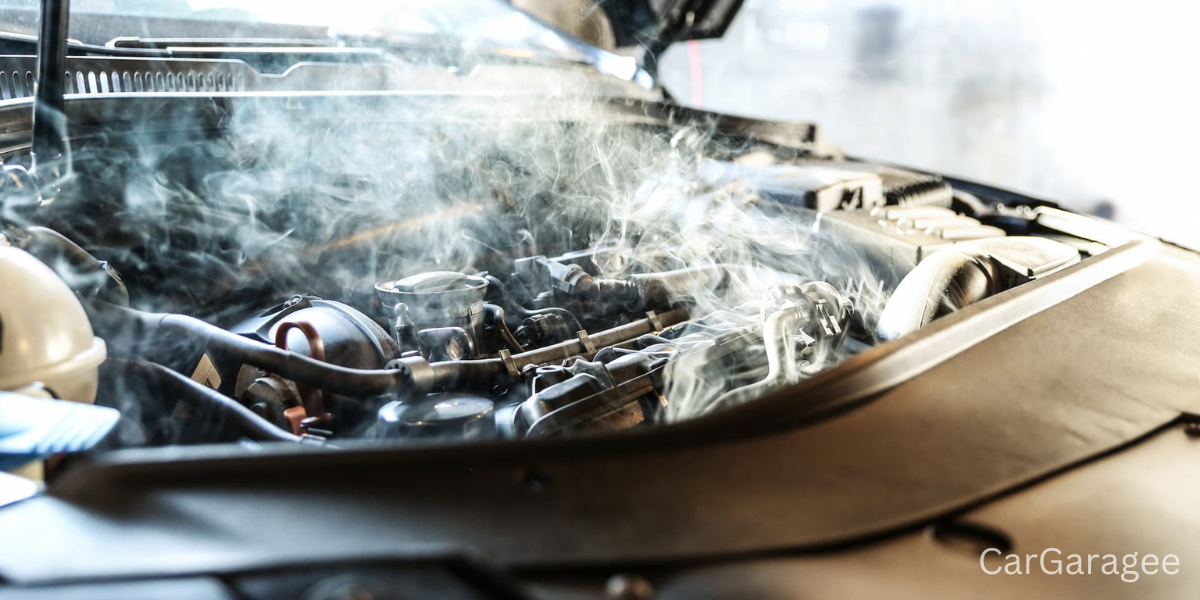





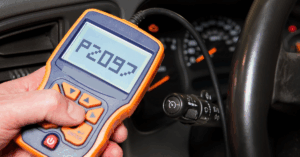
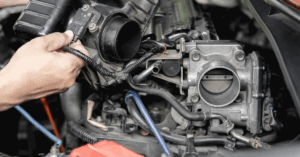
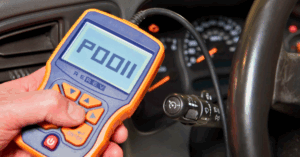
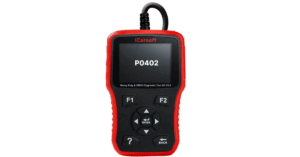
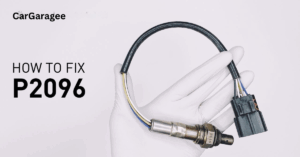
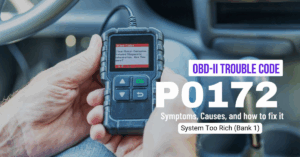
My brother suggested I might like this website He was totally right This post actually made my day You cannt imagine just how much time I had spent for this information Thanks
Thank you for the fantastic feedback! It’s great to hear that you found the information helpful. If there’s anything else you need or any topics you’d like us to cover, let us know.